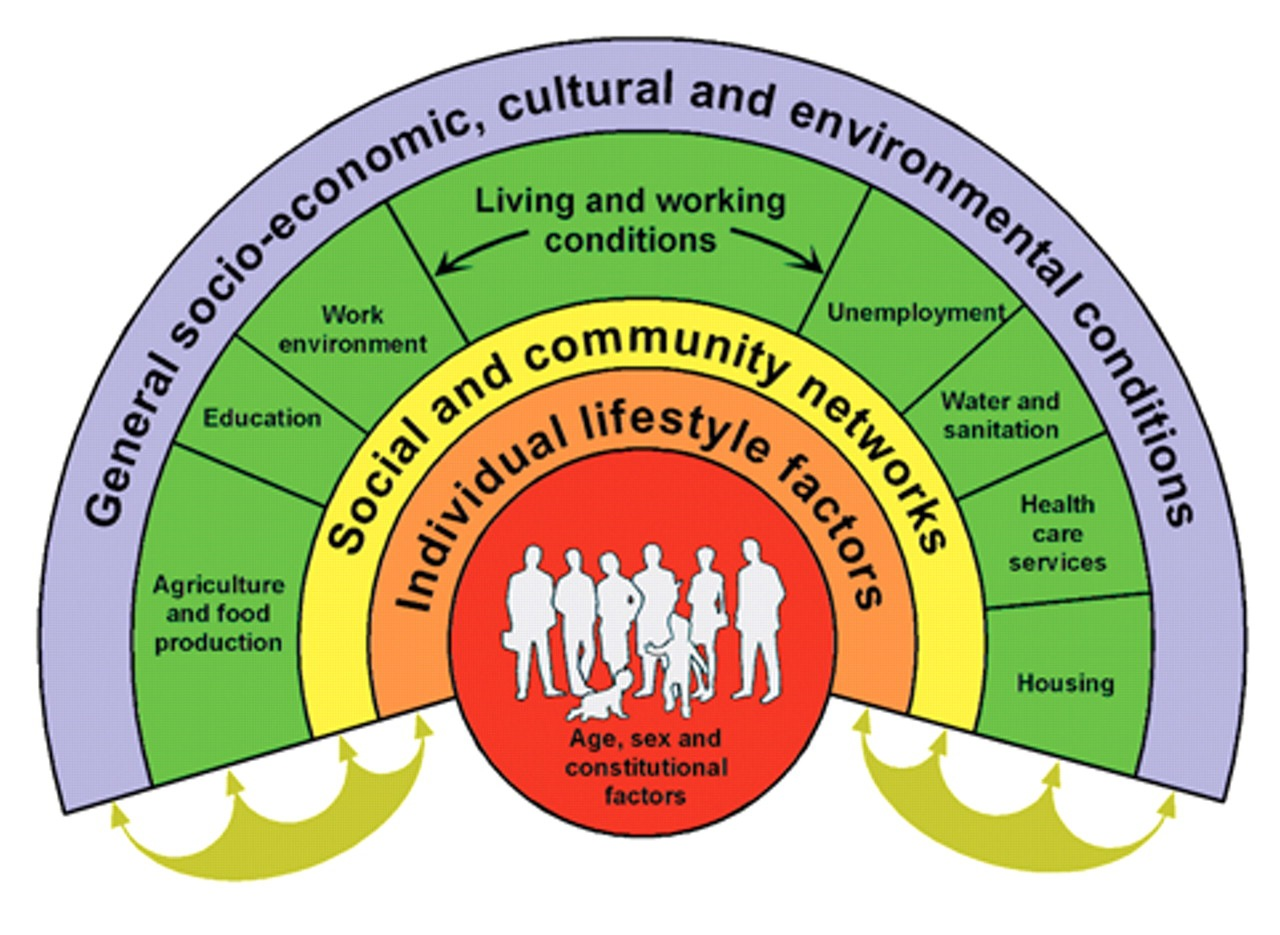Perceptions of health as social constructs requires you to understand that the various understandings and different meanings people have or attribute to health are mostly created by their society. That is, our understanding and interpretation of health is created and developed by our society. A good way to think about it is that your perception of health is greatly affected by your context. Have you ever wondered the question below, because social construction is the answer, as well as the previous individual factors (knowledge, skills, attitude, genetics).
Why would my perceptions of health be similar or different to others?
If you think about a person in a third world country who has no access to clean water, cannot afford foods other than maze, has lost their family due to war and lives in a refugee camp. What they think about what it means to be healthy and what health is will be largely affected by the circumstance of their life. Compare that to a wealthy business man, who runs a international gym company, has a university degree in health and spends lots of time with his family and gets his food delivered from an organic farm. His thoughts and understanding of health will be very different to the refugee.
Your understanding of perceptions of health as social constructs should identify that an individual’s interpretation of health is largely influenced by their: socioeconomic status (education, employment, income), sociocultural status (family, peers, media, religion, culture), and environment (geographical, political, social, access to information and technology) among other things.
Perceptions of health as social constructs also means that the interpretation of health changes with time. This can be seen with the commoditisation of fitness and the growth of the health industry along side pharmaceuticals and the medical system. We have many large groups invested heavily in the concept of health, including what is means to be healthy and how to be healthy.
We also expect people in different contexts and from different cultures to have different perceptions of health. They have different meanings and interpretations of health because their understanding is a result of their society, just as our perception is a result of ours.
Determine the degree to which perceptions of health are socially constructed
The degree to which perceptions of health are socially constructed is more than you think. Our society likes to tell us that we are unique and have come up with our own ideas and interpretations, but reality is much different. How we interpret health and what we think it means is more a result of our society tells us this, than it is us coming up with such an interpretation.
Even sitting in this lesson is society constructing your perception of health. The government and other bodies, including BOSTES and other teachers have decided that you need to learn what health is. You would have learnt this in your younger years at school as well. We then all use much the same text or website to get our information. You will also be affected by the quality of your education, your parents education and the value your culture puts an the dimensions of health.
Australia for example, places a much larger emphasis on physical health than social or spiritual health. Whereas many Asian cultures value social and spiritual over mental health. The emphasis is a result of the society and what you think about health, the images that come to mind and the concept of what health is, is a result of the society in which you live.

